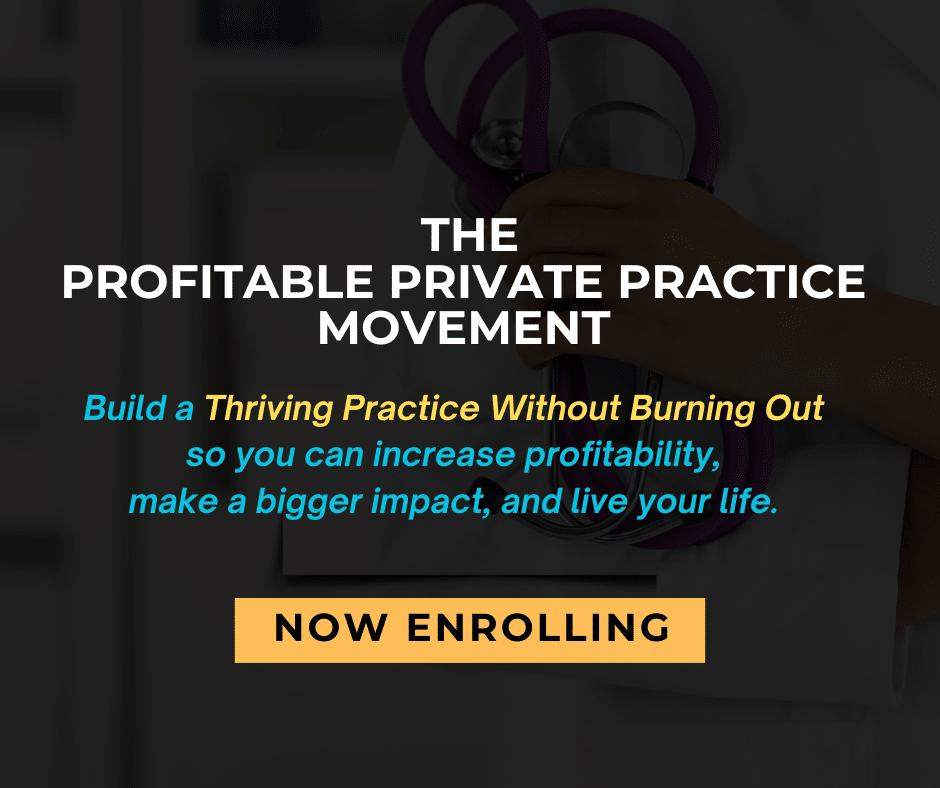
If you’re currently a practicing doctor, you know all too well the hours of blood, sweat, and tears it took to get to where you are now. If you’re considering a medical career as a doctor, you might view the next years of your life as you would view climbing to the top of Mount Everest.
You’re not wrong — the years it takes to become a fully-fledged doctor and start practicing medicine usually means you won’t reach that peak until you’re in your mid to late 30s.
Steps to Becoming a Doctor
Here’s a quick look at the steps it takes to become a doctor and the money it takes to get there:
1. Graduate from high school with high grades to get into a good college.
2. Take and score well on the Standard Assessment Tests (SATs) or the American College Testing (ACTs).
3. Get a 4-year undergrad degree.
4. Take and pass the Medical College Admissions Test (MCAT).

5. Attend medical school for four years.
6. Take and pass the United States Medical Licensing Examination (USMLE) sometime during years 2 and 4.
7. Take and pass board exams.
8. Match and spend 3 to 9 years as a resident.
9. Pass final board exams.
If that’s not enough for you and you want to get a subspeciality, you can take another one to three years doing so. And now you can start working.
Costs of a Physician Education
Time and money are probably the two most important factors to consider when deciding whether becoming a doctor is right for you or whether you could have a fulfilling and satisfying career after completing medical school.
Researchers at the Education Data Initiative report that the average cost of an undergrad degree in the U.S. in 2022 is between $102,828 to $173,684, depending on whether you choose to get your degree in your home state or go to an out-of-state school.
That same study lists the cost of a medical degree as between $205,856 and $231,732, again depending on whether you choose to go to a medical school in your home state or go out of state.
And it’s not just going to school that will cost you. If you need to take SAT or ACT prep courses, you could be looking at spending a few thousand dollars. Taking your MCAT costs $315 per test. The USMLE ranges from $600 to $1,200 per section. Applying to medical schools costs, on average, $170, and the average medical student applies to 16 schools within a given year.
Doctors must have a state medical license, and approximately 90% of all practicing doctors in the U.S. also choose to become board certified. Board certification is voluntary, and you can still practice without passing them.

The average medical school graduate owes six times as much as the average college graduate. They owe a median average of $200,000 to $250,000 in total debt, including debt from an undergrad degree.
Once you’ve absorbed the magnitude of that debt load, you can start to consider your next move. At this point, you can choose to spend the next three to nine years in a residency before finally arriving at the coveted position of being a doctor.
The good news is that you’ll be making money, not spending it as a resident. You won’t be making nearly as much as you will when you finish your residency, but with an average salary of $64,000, you’ll feel like a king (of a very small country).
Anyone who’s watched a tv show based on life in a hospital gets the picture that residency is no picnic. You’ll work 80 hours weekly, making around $16.00 an hour. While anyone can earn that much working in a fast food restaurant these days, you can look forward to making, on average, $183,429 a year once you’ve completed your residency.
While there are undoubted benefits to spending the eight to 17 years it takes to become a doctor, it’s also worth exploring whether completing medical school and then pursuing a career in medicine without completing a residency can also lead to a fulfilling career and lifestyle.
The U.S. Bureau of Labor Statistics says the job growth rate for doctors is projected to grow three percent from 2020-2030. That’s slower than the average for other occupations. Even with that low number, there are still a projected 22,700 openings for physicians each year due to doctors opting out or retiring.
Cons of a Becoming a Physician
It’s no secret that today’s physicians carry big burdens, and many battle job stress, depression, and burnout. Again, setting aside the costs of becoming a doctor, with statistics that say around 50% of all doctors suffer from burnout, there are reasons to carefully consider whether becoming a doctor is right for you.
There will always be more to learn. The learning doesn’t end once you’ve graduated from med school. Doctors are regularly required to attend seminars to keep on the cutting edge of medicine. Not only that, but with technologies seeming to change at the speed of light, there’s a constant learning curve to just stay current.

There will always be rules and regulations to follow. In the Journal of Health Care Finance, an article entitled “Proven Solutions for Improving Health and Lowering Health Care Costs” reports that doctors are:
“more and more obliged to perform bureaucratic activities and undergoing a series of tasks that have nothing to do with the execution of the medical act itself…The surgeon spends at least 20% of his time in bureaucratic activities that add nothing to professional performance.”
There will always be high pressure and work-related stress. The very traits that make a doctor a good doctor are the ones that will create the most pressure and stress in their lives. Many doctors have personalities that can be described as committed, conscientious, and even obsessive. Pair that with the demanding work they do every day, and you can see that being a doctor can be a recipe for burnout.
Which Jobs Are Available After Medical School Without Completing a Residency?
So, can you practice as a doctor in the U.S. without completing a residency? While it’s not mandatory, choosing not to invest the time into one will mean you won’t qualify for a state medical license.
According to Academic Medicine (AAMC), you can’t get this license without at least one year of residency. The bottom line is that you’ll need to complete a residency if you wish to offer hands-on patient care.

The end game of a residency program is to become a fully independent physician, able to give patient care without supervision. You have many career options if you want to work in medicine but can imagine doing so without working on the front lines.
M.D.s Without Residency Career Options
Being an M.D. without residency doesn’t mean you can’t work in the medical field. There are several health-related jobs that medical school graduates can qualify for.
Some of them might require extra training to get the necessary certification. Still, this training is much shorter than the three to nine years residencies take. Entry into these courses typically isn’t as competitive as getting into a residency program.

The starting salaries for some of these jobs may be lower than the starting salaries of residency-trained physicians, and they may not pay as much as the average physician makes. Still, they will give you long-term full-time employment in the health care field.
Hands-On Job Options

If you’re clear you want to work directly with the patients but don’t want to complete a residency, some job options will let you do so.
Physician Assistant
While most states require a degree in a designated P.A. Program to qualify as a physician assistant, some states, like Missouri, define their licensure as any medical school graduate who has “successfully completed Step 2 of the United States Medical Licensing Examination.”

Other states have specific requirements for whether your medical degree will qualify you to work as a physician assistant. P.A.s can expect to earn an average of $108,610 per year.
Specialist in Poison Information (SPI)

A specialist in poison information works in a poison control center. There are 55 independent poison centers across the U.S. They are currently staffed by SPIs who come from various backgrounds, such as foreign and domestic M.D.s, along with pharmacists and nurses. Extra training is required to pass the certification exam, but the job pays while you’re training. SPIs can make between $45,000-$168,500 depending on experience and background.
Electrodiagnostic Medicine Technician

Electrodiagnostic medicine is a subspecialty that deals with neurological, neuromuscular, and muscular systems. Technicians diagnose nerve and muscular conditions. There are specific electrodiagnostic medicine programs that you can pursue that may not require a residency program. AANEM offers a variety of self-assessment examinations and study guides for physicians to see if they meet the program requirements. Electrodiagnostic medicine technicians can expect an average of $63,650 a year.
Writing Job Options

Freelance medical writers who are doctors can make very good money as they charge by the hour. Assignments can be done for multiple clients, and you can write from home or anywhere you have a laptop and WiFi. Various types of writing include technical writing, scientific writing, medical editing, writing clinical trial reports, medical product safety inserts, grants, manuals, how-to guides, and journal articles. Doctor writers can charge between $100-$150 an hour, with an annual salary of well over $200,000 per year.
Teaching Job Options

If you liked the learning portion of school and loved explaining to friends and family the things you learned, you might be a perfect candidate to teach at a medical college or university or even at med school and teaching hospitals. Teaching basic or advanced level sciences, including biochemistry and anatomy, can let you earn up to $97,370 a year, while other health specialties can let you earn an average of $73,490 a year.
Research Job Options

There are several types of research career paths you can follow with your medical degree that don’t require a residency or license. Medical research scientists are involved in creating and running studies that study diseases and how to treat them. Clinical research associates (CRAs) help to complete medical research and clinical trials. A medical science liaison role includes advising and running department areas inside pharmaceutical or biotech companies. The average annual salary for a CRA is $91,285, while the average annual salary for a medical research scientist is $81,066. A medical science liaison can expect an average salary of $152,000 each year.
Business-Related Job Options
Health Insurer Specialist

Health Insurance specialists work as underwriters to help create insurance policies and review and change them if needed. There are many non-clinical jobs with health insurers in all states. The typical starting position is as an associate medical director before becoming a medical director. A good ballpark for a starting salary is $180,000-$200,000.
Medical Consultant
With healthcare making up more than 1/6 of the U.S. economy, there are tremendous opportunities for M.D.s without residencies to act as consultants. Working with technology companies lets you help them create better products for their clients. You could also help doctors and clinical healthcare facilities improve their business or management practices.

According to Glassdoor, you will spend half of your time at client sites working to help them improve their performance. The job includes focusing on strategy and operations for these types of agencies: health care providers/hospitals, insurance companies, pharma and device companies, and government agencies. A full-time medical consultant can be paid up to $200,000 per year.
Medical and Health Services Manager

If you took (and enjoyed) any management courses during medical school, you could find a fulfilling career as a director or manager for healthcare organizations. The job includes planning, directing, and coordinating medical and healthcare services and schedules. Sometimes called medical services managers, your work can be as a program director, compliance officer, or CEO in medical facilities. The responsibilities of a manager/director on this level are responsible for and accountable to physicians, staff, patients, vendors, and regulatory organizations. Medical service managers can expect to make an average of $99,730 a year.
Performance Improvement Consultant

Performance improvement, like quality improvement, has recently become more important in hospitals, consulting firms, and healthcare facilities. Graduates from medical school are suited for these roles as they’ve learned the specific medical language physicians and clinicians use. These types of consultants or managers are responsible for creating and leading services and programs that help ensure the facility’s services are always improving. As of August 2022, the average annual pay for a performance improvement consultant is $95,484 per year.
Clinical Trial Coordinator
If you have above-average people skills and a medical degree, working as a clinical trial coordinator could be the perfect role for you. Also known as a clinical research coordinator, you’ll be the main point of contact for research participants and responsible for making sure they are safe and well taken care of during their trials. On the low end of salaries, working as a clinical trial coordinator pays $50,720 on average per year. California, New York, Massachusetts, New Hampshire, and New Jersey pay the highest salaries in this field.

As you might expect, I am a fan of doctors building profitable businesses so they can live life and practice medicine on their own terms. And if that, for you, looks like pursuing a career without attending a residency program, I’m all for it!
Let me know if you know of other physician jobs that don’t require completing a residency. If you’re looking for support as you create a business or career that will empower you in your work, send me an email. I’d love to chat.


